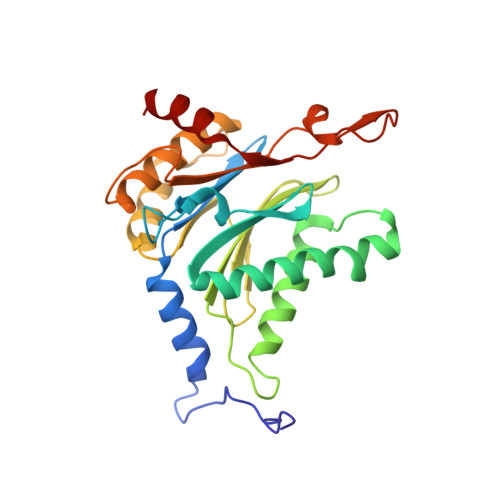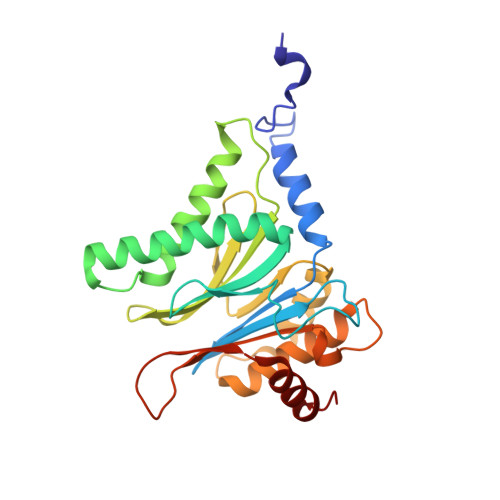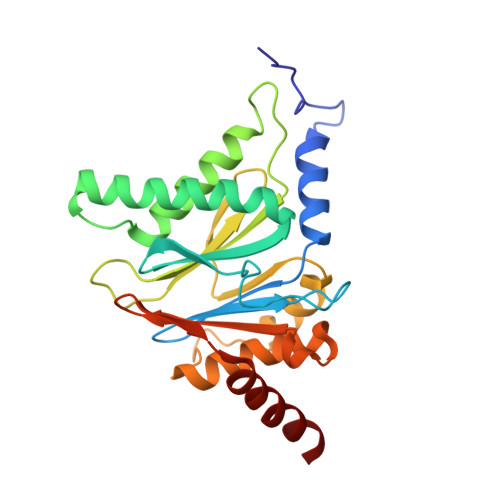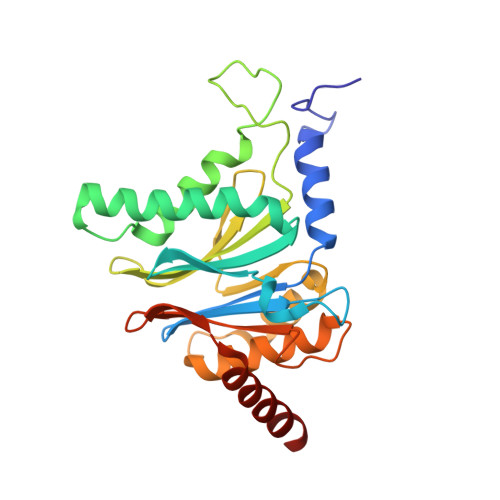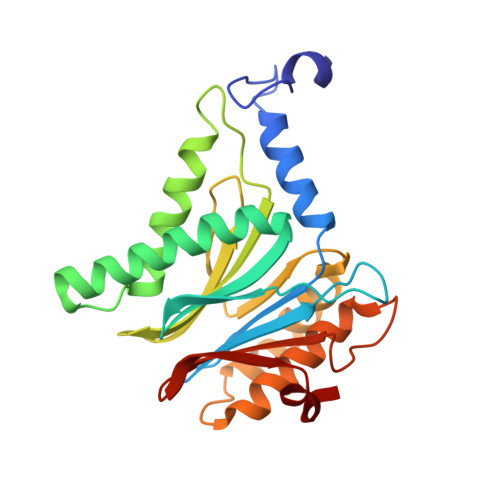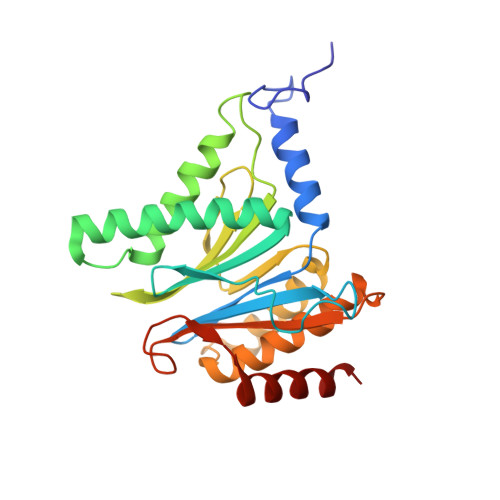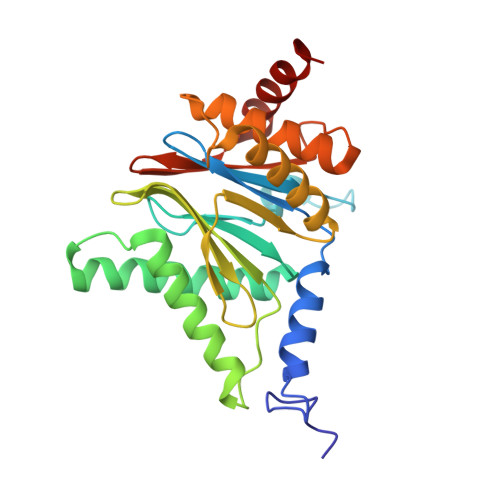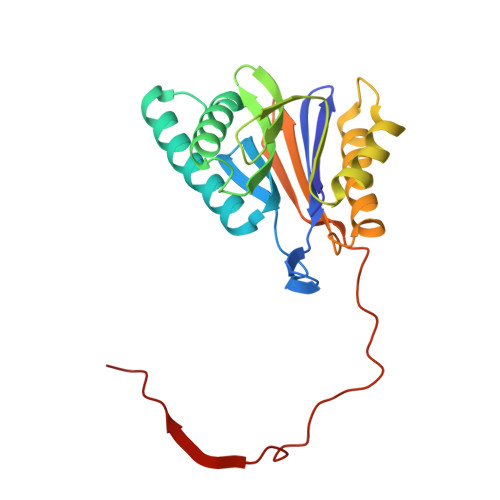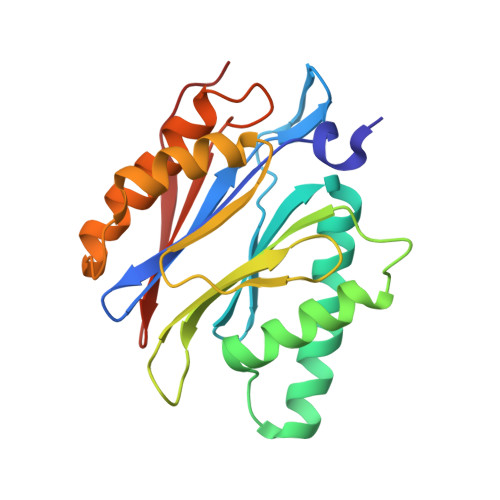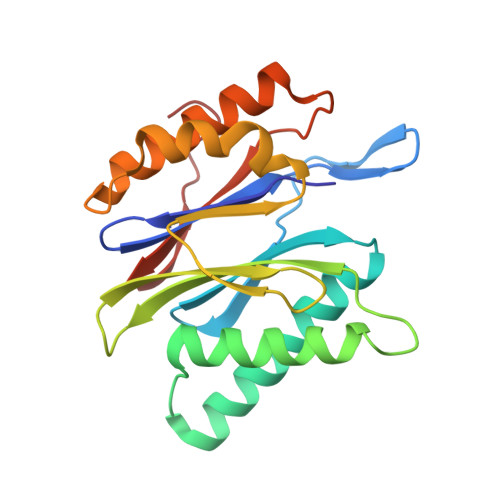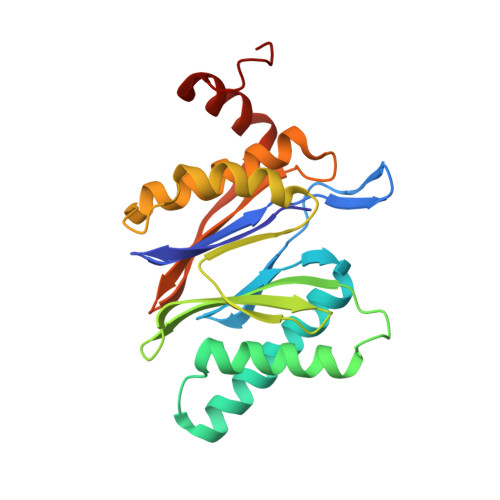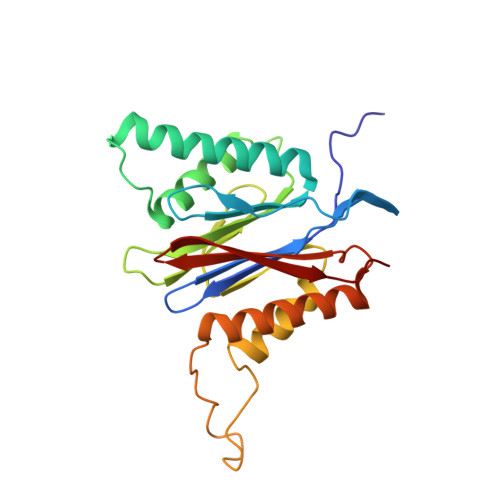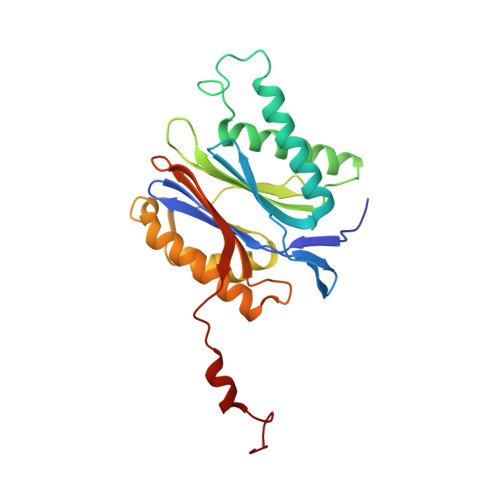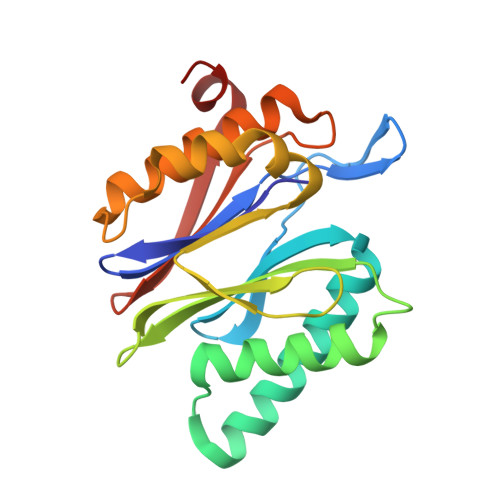Snapshots of the fluorosalinosporamide/20S complex offer mechanistic insights for fine tuning proteasome inhibition
Groll, M., McArthur, K.A., Macherla, V.R., Manam, R.R., Potts, B.C.(2009) J Med Chem 52: 5420-5428
- PubMed: 19678642
- DOI: https://doi.org/10.1021/jm900559x
- Primary Citation of Related Structures:
3GPT, 3GPW, 3HYE - PubMed Abstract:
Many marketed drugs contain fluorine, reflecting its ability to modulate a variety of biological responses. The unique 20S proteasome inhibition profile of fluorosalinosporamide compared to chlorinated anticancer agent salinosporamide A (NPI-0052) is exemplary and relates to each halogen's leaving group potential. Crystal structures of fluoro-, hydroxy-, and bromosalinosporamide in complex with the yeast 20S proteasome core particle (CP) provide mechanistic insights into ligand binding and leaving group elimination and the ability to fine-tune the duration of proteasome inhibition. Fluorosalinosporamide/CP crystal structures determined over time offer striking snapshots of the ligand trapped with an intact fluoroethyl group in anticipation of fluoride elimination, followed by complete nucleophilic displacement of fluoride to give the highly stabilized cyclic ether found for salinosporamide A and bromosalinosporamide. This two-step reaction pathway is consistent with a mechanism for partially reversible proteasome inhibition by fluorosalinosporamide. Proteasome catalyzed fluoride displacement provides preliminary insights into the active site Thr1N pK(a).
- Center for Integrated Protein Science at the Department of Chemistry, Lehrstuhl für Biochemie, Technische Universität München, Garching, Germany. michael.groll@ch.tum.de
Organizational Affiliation:








